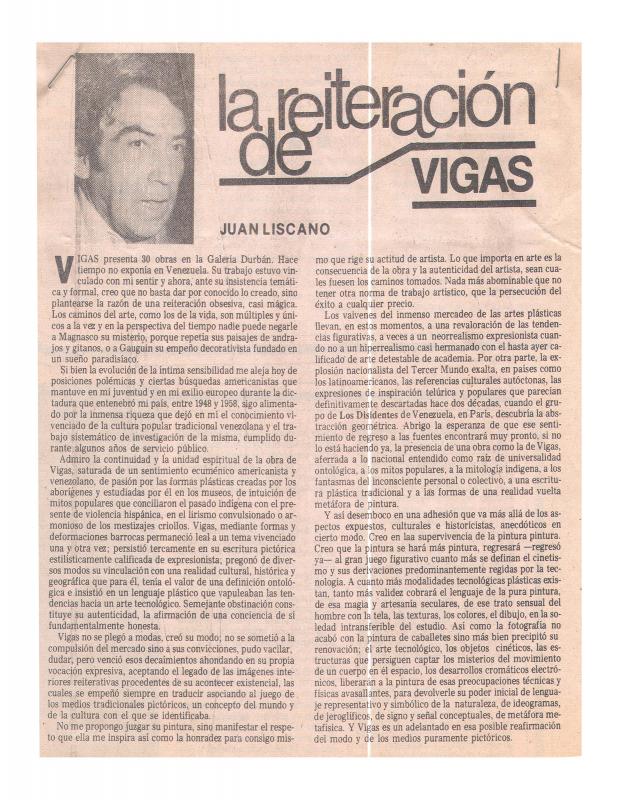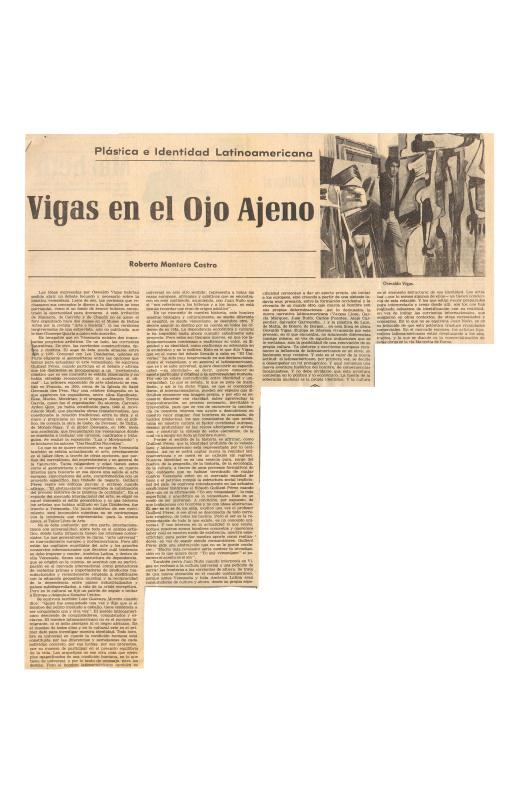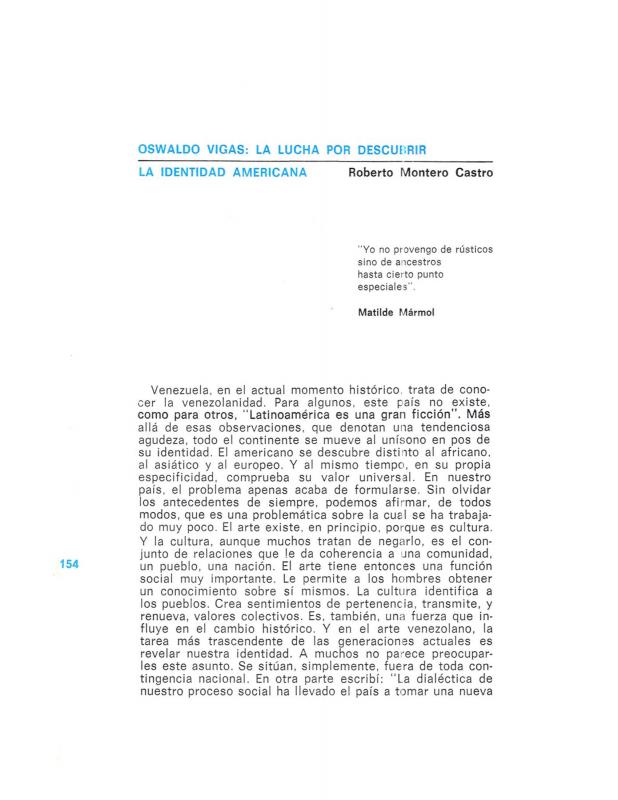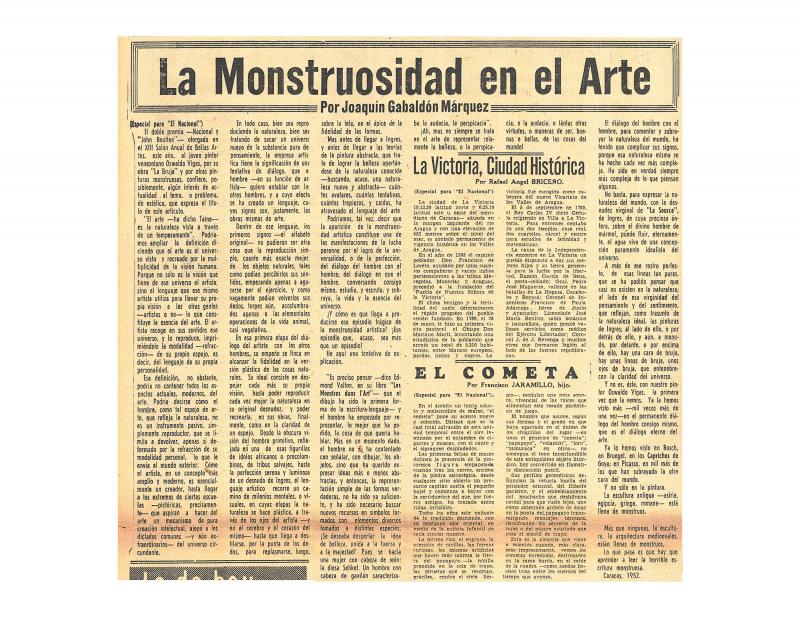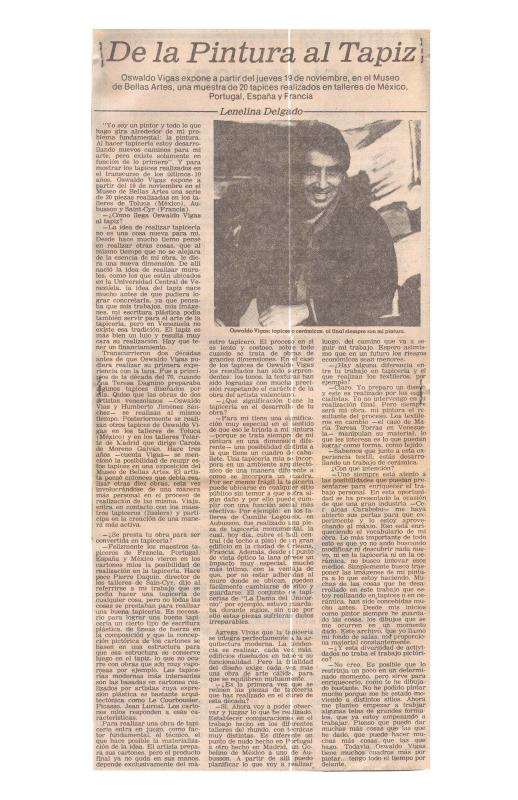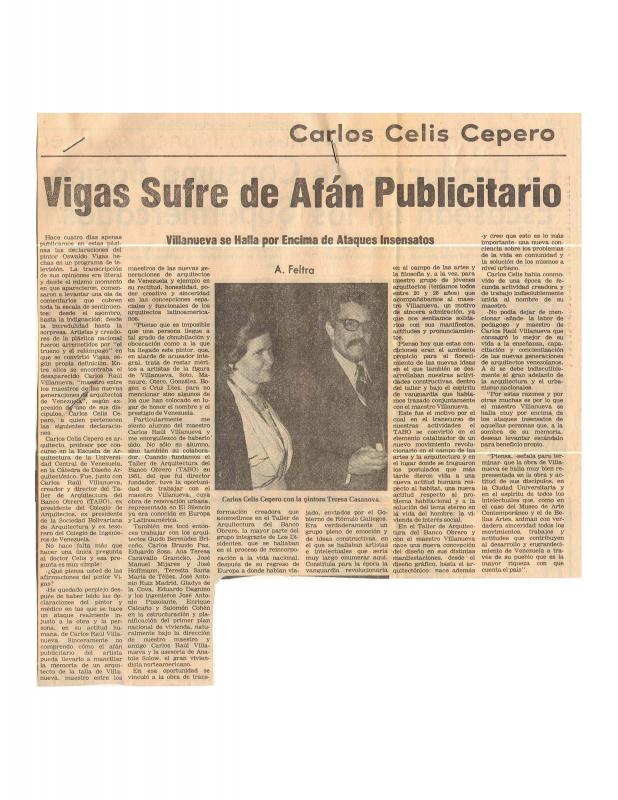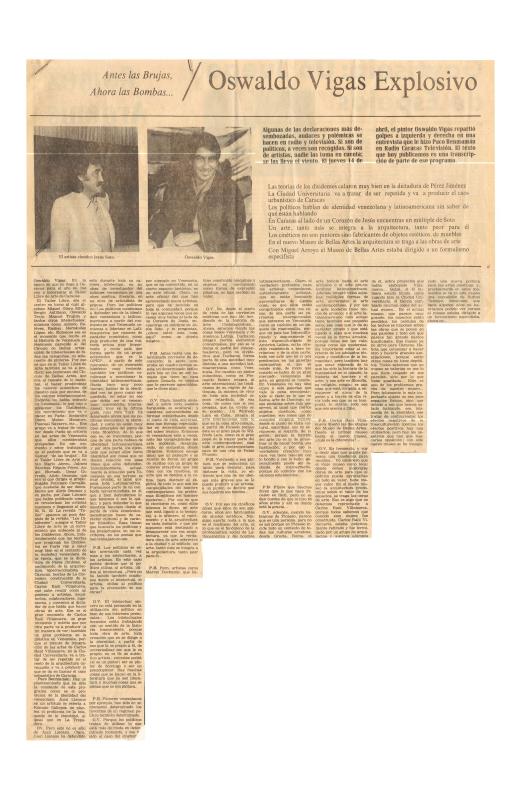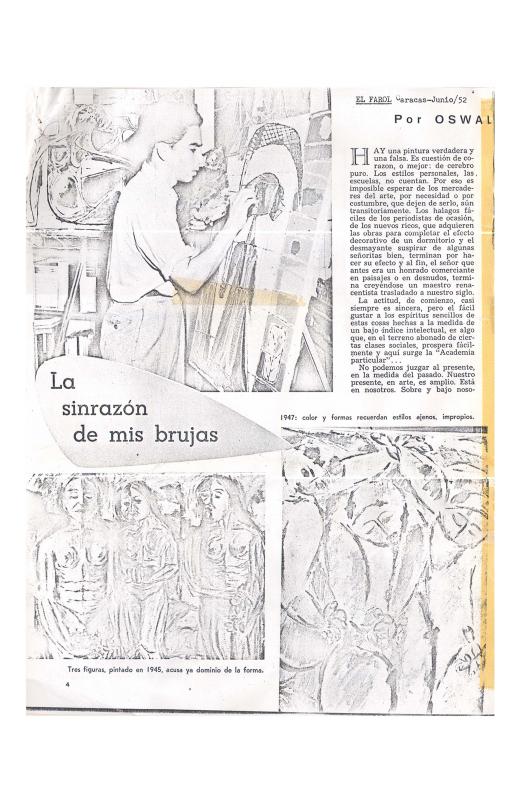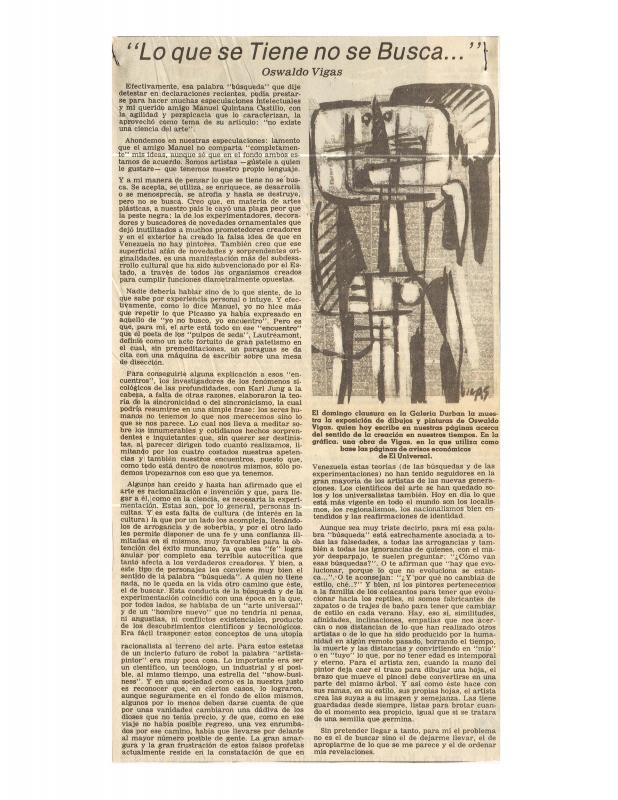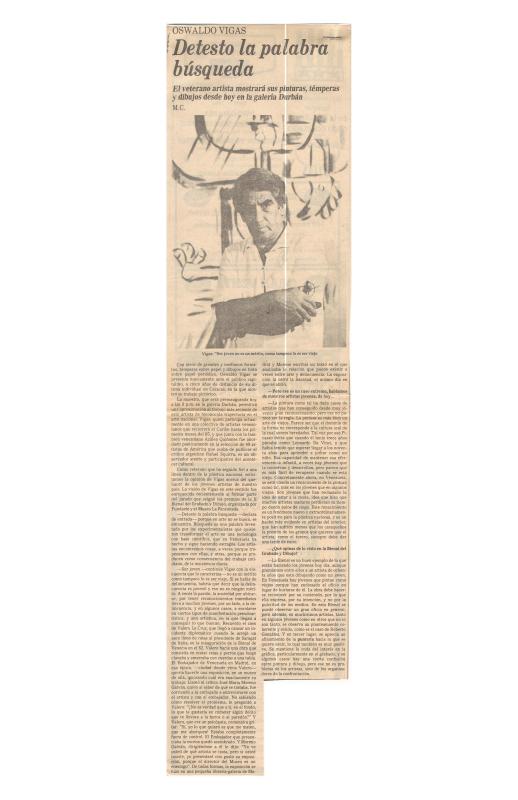The painter Oswaldo Vigas (1926?2014) returned to Venezuela in 1964 after spending eleven years in Paris. His long absence made it hard for him to readapt to an art scene where other movements were thriving and, to some extent, he was obliged to reclaim his position and reestablish himself as an artist. In this essay, which appeared in the catalogue for the exhibition Las Brujas, árbol genealógico. Oswaldo Vigas 1941–1952 (Caracas: Galería 22, 1966), Vigas attempts to explain—or justify—the basis of his work. He explains that many of his ideas can be traced back to his student days, when the climate of change, challenge, and debate sowed the seeds of his lifelong interests and concerns. This essay describes the origins of Vigas’ artistic language, but its true intent is to discuss the impact those early experiences had on his later work, as he indicates when he refers to the nature of the external influences that left their mark. His account of his own personal experience reveals his special insight into the art scene in his country in the 1940s and 1950s, and the environment from whence—as a student—he responded in a thousand ways to the stylistic and thematic cannon of the time. The essay conveys his subsequent concerns about foreign influences, the legitimacy of certain art movements, the search for identity, and the need and/or lack of acknowledgement.
For more information about the work of Oswaldo Vigas, see the article by Juan Liscano “La reiteración de Vigas” [doc. no. 1152769]; by Roberto Montero both “Vigas en el ojo ajeno - Plástica e identidad latinoamericana” [doc. no. 1153266], and “Oswaldo Vigas: la lucha por descubrir la identidad americana” [doc. no. 1168108]; the article by Joaquín Gabaldón “La monstruosidad en el arte” [doc. no. 850831]; Lenelina Delgado’s article “De la pintura al tapiz” [doc. no. 1153365]; A. Feltra’s article “Vigas sufre de afán publicitario” [doc. no. 1155580]; and Paco Benmaman’s interview “Oswaldo Vigas explosivo: antes las brujas, ahora las bombas” [doc. no. 1153245].
In addition, Vigas noted his thoughts on young Venezuelan artists in “La sinrazón de mis brujas” [doc. no. 1153349], and “Lo que se tiene no se busca” [doc. no. 1152785], and also in M. C.’s interview with Vigas, “Detesto la palabra búsqueda: Oswaldo Vigas” [doc. no. 1152801].

